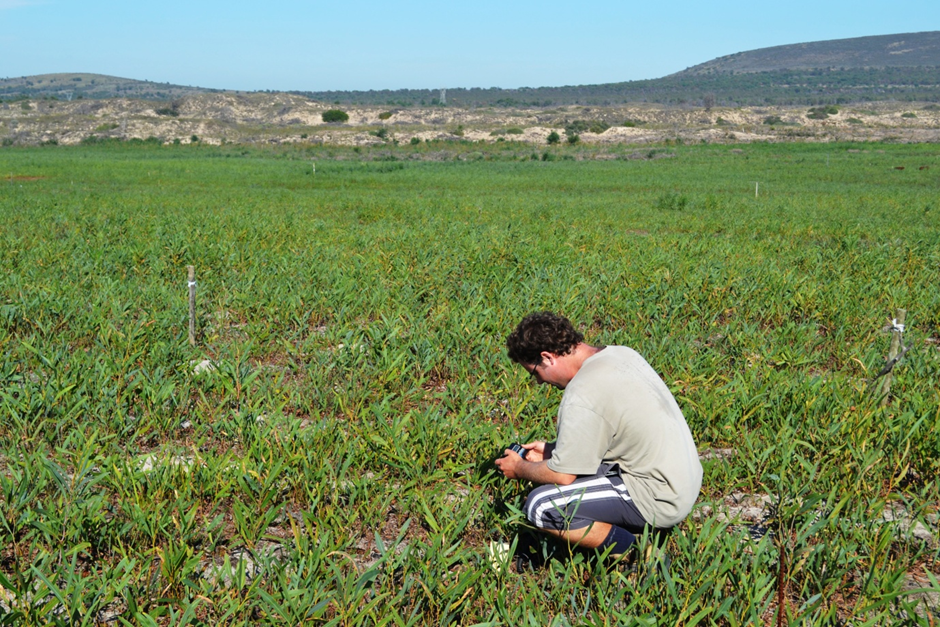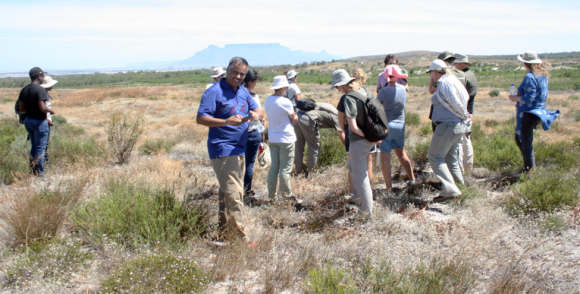22 November 2016 | By Stuart Hall
A recent paper by C·I·B student, Stuart Hall, found that heat pre-treatment of seeds can improve restoration efforts in fynbos ecosystems that were cleared of invasive alien tree species. The paper was co-authored by C·I·B Core Team Members, Mirijam Gaertner and Karen Esler, and C·I·B Research Associate, Patricia Holmes.
In areas where invasive alien plants have been removed there may be a need for reintroducing seed of fynbos species to re-establish a functional ecosystem. Much work has been done on the effect of smoke on germination, but few studies on the effect of heat treatment. The study, which was conducted on seeds of species from Blaauwberg Nature Reserve, compared the effect of different temperatures and times of exposure on the germination of a range of species that are typical of fynbos vegetation.
After grouping the seeds according to their response to the heat treatments, Stuart identified two main groups. One group was stimulated by smoke without heat, or extended exposure to mildly high temperatures, or did not require any germination cues. These species were in most cases sensitive to temperatures above 60 degrees Celsius. The other group of species needed exposure to higher temperatures, germinating best at exposure to 100 degrees Celsius, and not germinating optimally without heat exposure.

According to Stuart, “our study gives us a guideline of what species require heat treatments when planning active restoration involving sowing seeds of native species. Previous fynbos heat studies involved species mostly within the pea family (Fabaceae). Our study showed that species from genera in other families (Trichocephalus within Rhamnaceae and Pelargonium within Geraniaceae) also respond to heat and smoke treatment, which was not previously proven within the fynbos.”
“Our study further suggests what species are likely to experience depleted seed banks as a result of fires in ecosystems invaded by alien invasive species,” explains Stuart, lead author of the paper in Austral Ecology.
Read the paper by Hall et al.
For more information, contact Stuart Hall at ecostu@gmail.com

